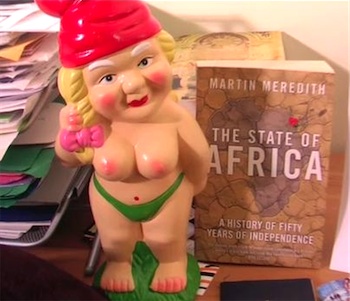Stilgherrian’s links for 11 June 2009 through 13 June 2009, gathered with tenderness and love. Especially love.
- The Poll Cruncher | Pollytics: How trustworthy is the result of an opinion poll? This handy little tool allows you to enter the sample size and the result, and it gives you the margin of error. Assuming, of course, that the poll was conducted randomly and ethically in the first place.
- What’s Your Professional Reputation? | Pollytics: Possum interprets the latest results from the Roy Morgan poll of public perceptions of ethics and honesty for various professions. As usual, newspaper journalists and car salesmen are down the bottom. Possum creates a nice little interactive graph showing how the result have changed each year since 1979.
- Nineteen Eighty-Four turns sixty | Inside Story: Brian McFarlane’s take on the 60th anniversary of the publication of Orwell’s classic. Somehow, while talking about film adaptations and connections to Phillip K Dick, he completely fails to mention Terry Gilliam’s Brazil.
- Dear Global Service Direct, where is my Snuggie? | Crikey: Crikey‘s coverage of their interactions with the Snuggie has the potential to become quite obsessive. In a good way. However this silly exchange of emails with Snuggie’s sellers contain one of the best customer service responses ever: “I wish I could do more but I am just a pawn.” Also, a graph.
- From little things… | RN Future Tense: This episode of ABC Radio National’s Future Tense included an interview with ActionAid Australia’s Archie Law about Project TOTO, as well as some great stuff about innovative uses of telecommunications technology in Kenya and India. Internet via bus, anyone?
- William Langewiesche on Somali pirates | vanityfair.com: Feature article on the incident where French luxury cruise ship Le Ponant was targeted by Somali pirates.
- louder than swahili: The blog of Pernille, a 37yo Scandinavian woman who’s been living in Tanzania since 2007, and most recently before that spent 26 months among Sudanese refugees along and across the Ugandan border to Southern Sudan.
- A Never Ending Race | absolutelybangkok.com: Bangkok in 2015 is a paranoid short yarn from Yan Monchatre, a French cartoonist and illustrator who’s resident in Bangkok.
- The First Few Milliseconds of an HTTPS Connection | Moserware: A deep, deep explanation of what happens when your web browser creates an encrypted connection to a website.
- mHITs: An Australian company providing the technology to pay by mobile phone. Currently seems to be limited to food and drink, and to a handful of venues in Canberra and Sydney.
- The United Republic Consulate of Tanzania Consulate: This is, I hope, the official website of the Consulate for Tanzania in Melbourne. It’s not particularly reassuring when the home page’s title bar reads: “::Welcom to Company Name::”.
- Rise of online mercenaries | Australian IT: Steven Bellovin, professor of computing science at Columbia University, predicts the rise of online mercenaries using techniques going back 200 years to letters of marque and reprisal, where governments commission somebody to attack another government’s assets with perfect immunity under law. The story’s a couple weeks old but still relevant.


